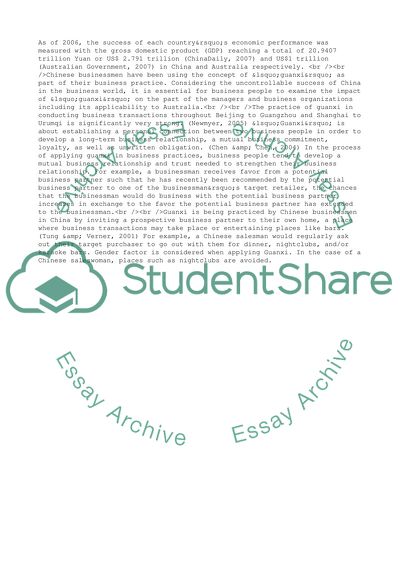Cite this document
(The Practice of Guanxi in China and Australian Businesses Coursework, n.d.)
The Practice of Guanxi in China and Australian Businesses Coursework. https://studentshare.org/business/1709355-guanxi
The Practice of Guanxi in China and Australian Businesses Coursework. https://studentshare.org/business/1709355-guanxi
(The Practice of Guanxi in China and Australian Businesses Coursework)
The Practice of Guanxi in China and Australian Businesses Coursework. https://studentshare.org/business/1709355-guanxi.
The Practice of Guanxi in China and Australian Businesses Coursework. https://studentshare.org/business/1709355-guanxi.
“The Practice of Guanxi in China and Australian Businesses Coursework”. https://studentshare.org/business/1709355-guanxi.


